Former President Trump’s trial stemming from Manhattan District Attorney Alvin Bragg’s investigation into alleged hush-money payments ahead of the 2016 presidential election is set to begin Monday with jury selection.
The trial in New York City is the first of the election year for the 2024 presumptive Republican presidential nominee. Trump has pleaded not guilty to all counts.
Manhattan Judge Juan Merchan is presiding over the trial. Trump’s legal team had filed a motion requesting that Merchan be recused from the trial due to his daughter’s Democrat-affiliated political work and the judge’s alleged “hostility” against the 2024 presumptive Republican presidential nominee.
What is Trump charged with in the hush-money case?
Bragg, last April, charged Trump with 34 counts of falsifying business records in the first degree. The charges are related to alleged hush-money payments made during the 2016 presidential campaign.
The DA alleged that Trump “repeatedly and fraudulently falsified New York business records to conceal criminal conduct that hid damaging information from the voting public during the 2016 presidential election.”
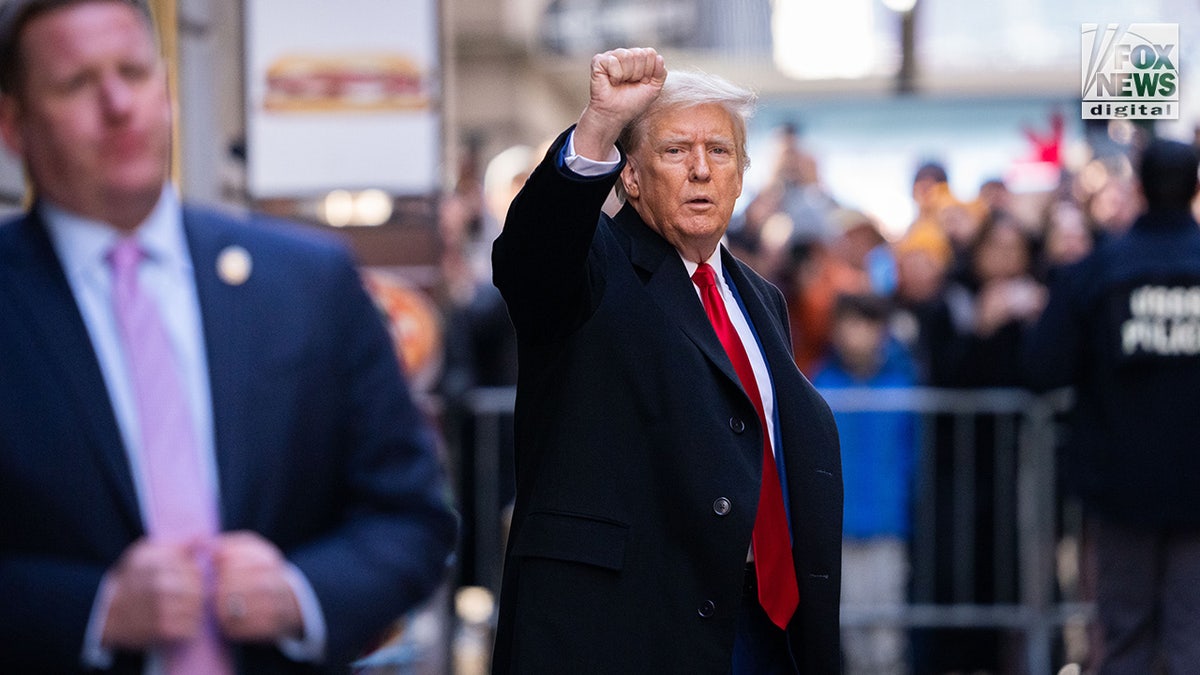
Former President Trump is shown in New York City on March 25, 2024. (Adam Gray for Fox News Digital)
“During the election, Trump and others employed a ‘catch and kill’ scheme to identify, purchase, and bury negative information about him and boost his electoral prospects,” Bragg alleged in the indictment last year. “TRUMP then went to great lengths to hide this conduct, causing dozens of false entries in business records to conceal criminal activity, including attempts to violate state and federal election laws.”
According to New York state law, a charge of falsifying business records in the first degree alleges that the defendant committed a crime of falsifying business records with the intent to defraud. The intent to defraud would be an intent to commit another crime.
In 2019, federal prosecutors in the Southern District of New York investigated the matter and opted not to charge Trump related to the alleged payments made to adult film actress Stormy Daniels and former Playboy model Karen McDougal.
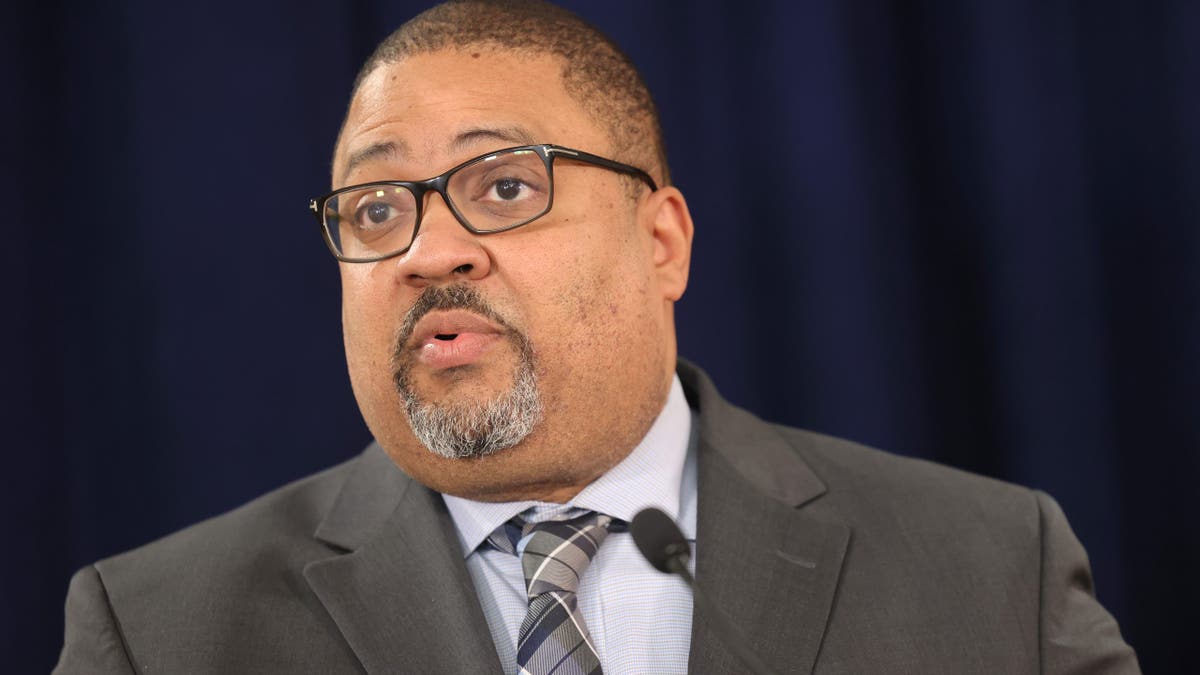
Manhattan District Attorney Alvin Bragg (File)
The Federal Election Commission also tossed its investigation into the matter in 2021.
Bragg alleged that Trump, from August 2015 to December 2017, “orchestrated a ‘catch and kill’ scheme through a series of payments that he then concealed through months of false business entries.”
TRUMP TRIALS: HERE’S WHERE EACH CASE AGAINST FORMER PRESIDENT AND PRESUMPTIVE GOP NOMINEE STANDS
Bragg further alleged that American Media Inc., the parent company of the National Enquirer, paid $30,000 to a former Trump Tower doorman who claimed to have a story about a child whom Trump had out of wedlock.
The DA also alleged that American Media Inc. paid $150,000 to a woman who alleged a sexual relationship with Trump. Bragg appeared to refer to McDougal.
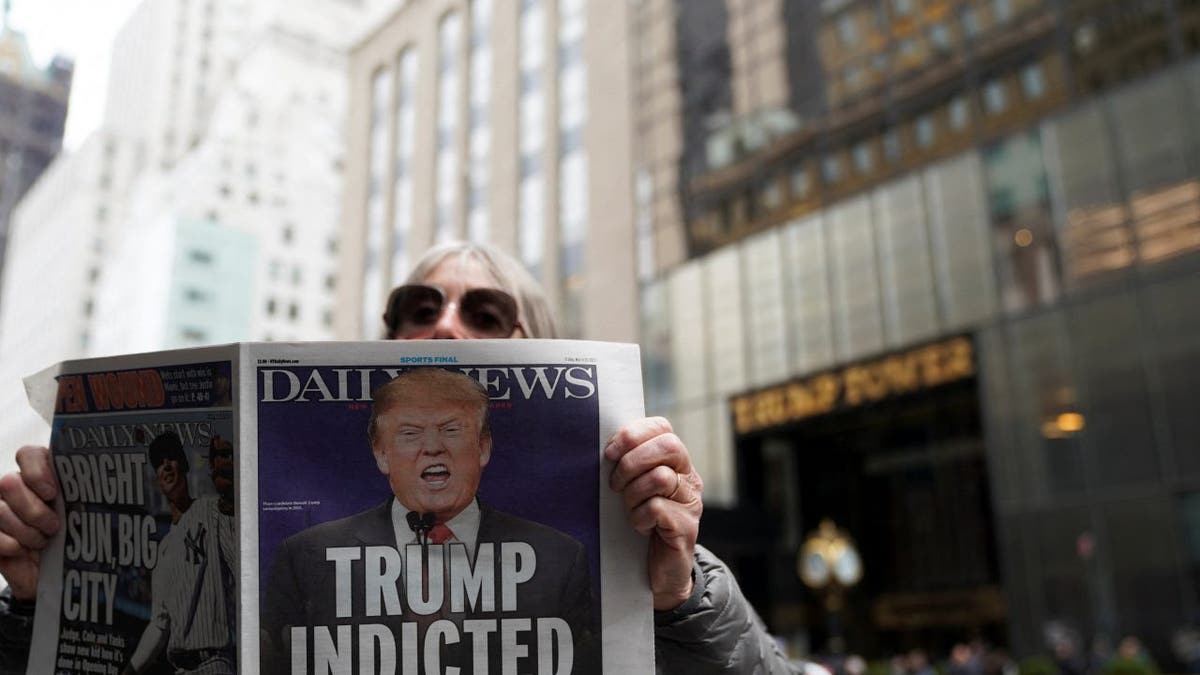
A newspaper features a picture of former President Trump following his indictment by a grand jury in relation to hush-money payments in New York City on March 31, 2023. (Reuters/David ‘Dee’ Delgado)
Bragg also alleged that Trump “explicitly directed a lawyer,” an apparent reference to his former attorney, Michael Cohen, to “reimburse” American Media Inc. in cash. He alleged that Cohen, “12 days before the presidential general election,” wired $130,000 to an attorney for an adult film actress — an apparent reference to Daniels.
DONALD TRUMP AND STORMY DANIELS: WHAT YOU NEED TO KNOW
Cohen, in 2019, pleaded guilty and was sentenced to three years in prison for violating campaign finance laws related to the payments, among other federal charges. Cohen pleaded guilty to arranging the payments but maintains that Trump directed them.
Bragg alleged that after the election, Trump reimbursed Cohen through a series of monthly checks “first from the Donald J. Trump Revocable Trust – created in New York to hold the Trump Organization’s assets during TRUMP’s presidency – and later from TRUMP’s bank account. In total, 11 checks were issued for a phony purpose.”
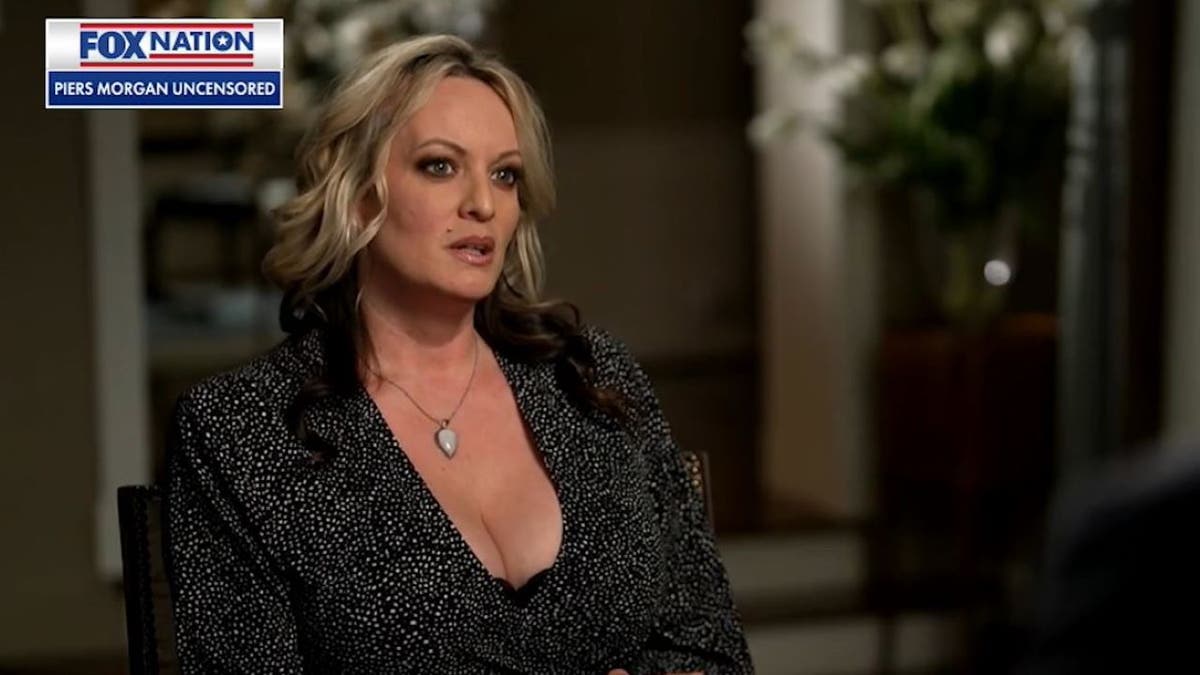
Stormy Daniels sits down with Piers Morgan for an interview available on Fox Nation. (Fox News)
“Nine of those checks were signed by TRUMP,” Bragg charged. “Each check was processed by the Trump Organization and illegally disguised as a payment for legal services rendered pursuant to a non-existent retainer agreement.”
JUDGE DELAYS TRUMP’S HUSH-MONEY TRIAL AMID LAST-MINUTE EVIDENCE DUMP BY FEDS
“In total, 34 false entries were made in New York business records to conceal the initial covert $130,000 payment. … Further, participants in the scheme took steps that mischaracterized, for tax purposes, the true nature of the reimbursements.”
Why did Bragg bring charges against Trump in the hush-money investigation?
Bragg, who stepped in as district attorney in the middle of the investigation first led by then-DA Cyrus Vance, initially signaled that he would drop the case and not bring charges against Trump. Prosecutors in the office resigned from their posts due to his stance on the matter and launched a public pressure campaign.
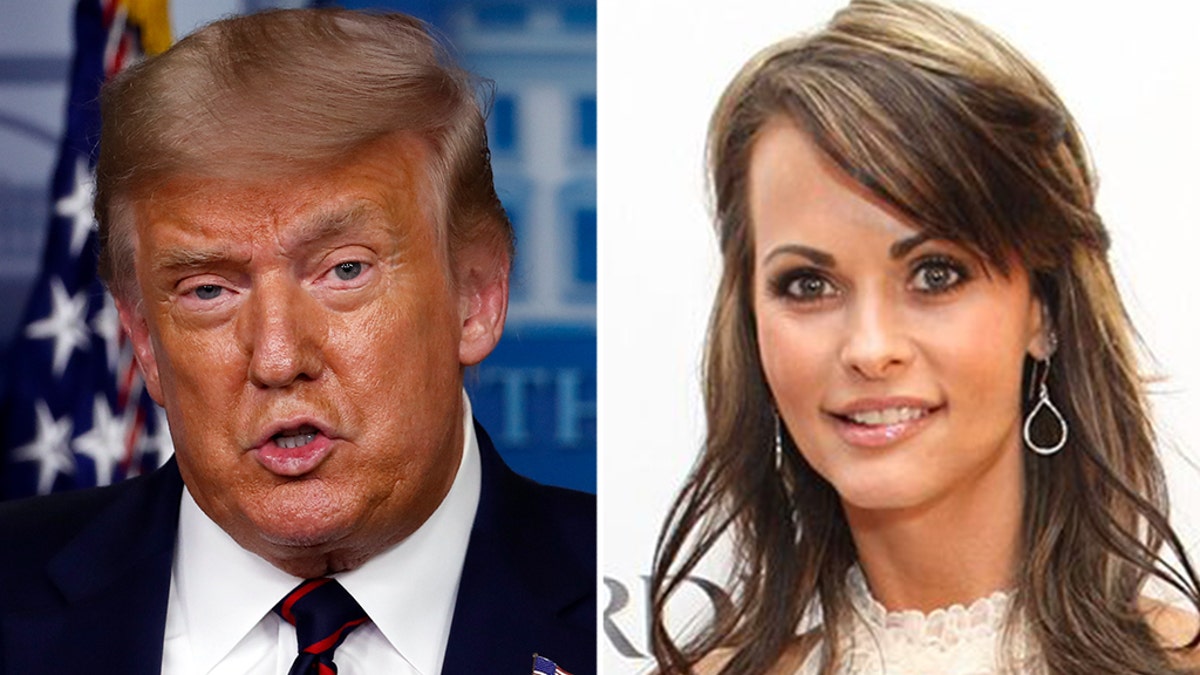
Former President Trump and Playboy model Karen McDougal (File)
Original News Source Link – Fox News
Running For Office? Conservative Campaign Consulting – Monthly Rates!
